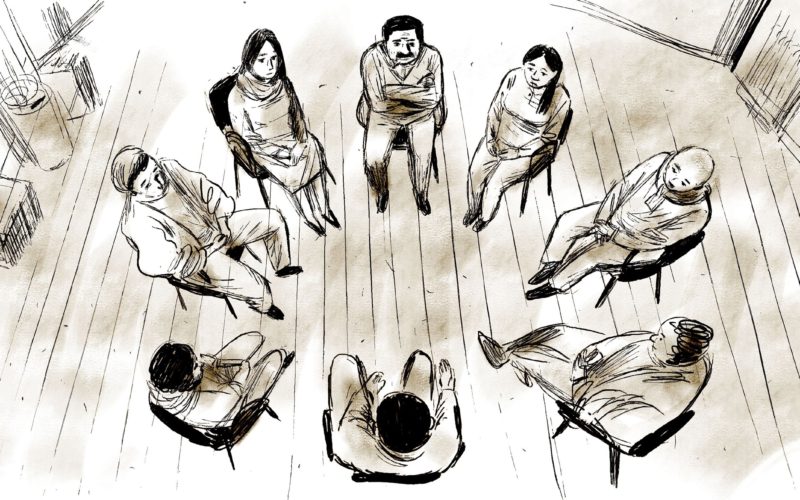A Once and Future Peace (Metzgar, 2021)
When I was an undergraduate student several decades ago, I took a General Education class in “Social Problems” and was assigned to do a book report. I picked a book on the difference between restorative justice and retributive justice, written from a Christian perspective. The instructor informed me that the I could not use that book and had to pick another. Restorative justice was not a sufficient “academic” topic for for a class on social problems.
I thought about that experience while watch Eric Daniel Metzgar’s “hybrid” documentary, A Once and Future Peace because one of the interviewees points out that our social systems (political, educational, religious) construct processes to deal with conflict that don’t reflect the values the vast majority of their members claim to share. The film lists those values as: Respect, Honesty, Trust, Humility, Sharing, Inclusivity, Empathy, Courage, Forgiveness, and Love. What would a system that attempted to incorporate those values into conflict resolution even look like?
A Once and Future Peace argues that it would look like a circle. “Peacemaking Circles” is the label given to interpersonal and mediated communication conducted while the participants face one another in a circular setting. Proponents of peacemaking circles argue that this is an ancient practice, endemic to nearly all cultures and religions. The film is loosely structured around the story of Andy, a teen facing multiple felony charges enrolled in a program that uses the peacemaking circle to try to free him of the downward cycle of violence and incarceration that threatens to engulf him. In between animated sketches of taped conversations, the film provides talking heads giving the history and rationale behind talking circles.
This film is not as focused nor as powerful as The Work, the 2017 documentary about a group therapy retreat inside a prison, but that’s okay. It appears to be aimed at a more general audience that might only now be hearing about such programs. If my undergraduate experience is any indication, that is a fairly safe assumption.
From a Christian perspective, it’s a difficult film because the participants pull no punches in describing the negative impact that organized religion has had on their spiritual development. One survivor of a missionary school summarizes succinctly the messages he internalized from the church’s attempts to discipline rather than love by saying that by the age of nine he knew three things: “I was stupid, I was ugly, and I was going to hell.” Obviously, such anecdotal examples are a greater indictment on individual Christians than on the religion itself, but the film does press gently for the viewers to consider how well their praxis — and that of the institutions they enable and support — reflects their values.
A Once and Future Peace is streaming this week at the Full Frame Documentary Film Festival.


I think I liked this doc somewhat better than you did, but I do wish Metzgar had animated more sequences of the talking circles, to better allow us to comprehend how they’re different from traditional group therapy. And I would love to see a documentary about the Indian residential schools; I got the impression from pre-pandemic visits to museums in Quebec and British Columbia that Canadians have only begun to reckon with the toxic impact of this mix of church/state imperialism. (And the protagonist in the film was named Andy, not Jose.)